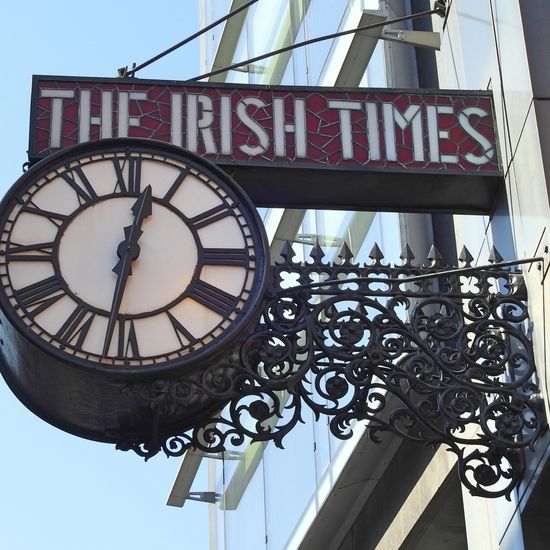The media group said cost reductions in newsprint, energy and professional fees were offset by increases in payroll, technology projects, home delivery and newspaper production costs. “This is a key area of focus for the group in 2024 and a voluntary parting programme has been introduced to target a reduction in headcount and allow for reinvestment in key digital roles for the future,” the accounts say.
The company returned to profitability in 2023, with a profit on ordinary activities before taxation of €2.118m, which followed a loss of just over €5m the previous year.
The accounts say that the group continued to make good progress in driving digital subscription revenues, which were up by 14pc, and third-party print contracts, which were up by 39pc. Print circulation revenues were up by 4pc, benefiting from the Government’s decision to reduce the Vat rate to zero on newspaper sales and digital subscriptions.
Group turnover of €115m was up 5pc on the figure of €109.7m from 2022.
The investment portfolio reversed most of its losses of the previous year, gaining €2.3m in value, now standing at €24.7m. This trend is said to be continuing hits year. The accounts say that the purchase of Rip.ie last May provides the Irish Times Group with an “excellent opportunity” to increase its digital footprint.
Since the statement of the financial position was finalised, the group has sold its controlling interest in Beat 102-103 to Bauer Media, and in August it bought the remaining 50pc interest in Gloss Publications Ltd.
The salaries of the leading executives in the group increased marginally last year, according to the accounts. Both editor Ruadhán Mac Cormaic and managing director Deirdre Veldon enjoyed a €5,000 pay rise, taking their salaries to €275,000. The salary of the deputy editor increased from €156,000 to €159,000.
The total number of staff at the group increased last year from 845 to 859, with the payroll cost going from €47m to €49.7m. The group includes the Irish Examiner newspaper, the property website MyHome.ie, several regional newspapers, and a share in the radio station WLR FM.
The accounts say that there were €264,898 costs incurred in reorganisation last year, down from €1.6m in 2022. This included redundancy costs. There was a €181,189 gain in the sale of associate investments, the majority of it from Siteridge Ltd, trading as Red FM.
Outlining the principal risks in the sector, the accounts say that replacement of print revenues – in advertising, newspaper sales and contract print – by sustainable alternatives is a key challenge.
“The sector is exposed to rapid changes in technology,” the accounts say. “There is a continuing associated risk from new entrants and disruptive business models. These may impact on both reader/consumer behaviour (and therefore consumption of media) along with the information technology system which support ongoing operations.”
The accounts say that the impact of Generative AI is not yet known, but there is potential for this fast-moving technology “to significantly impact our distribution and referral channels, with the consequent effects on traffic and revenues”.


